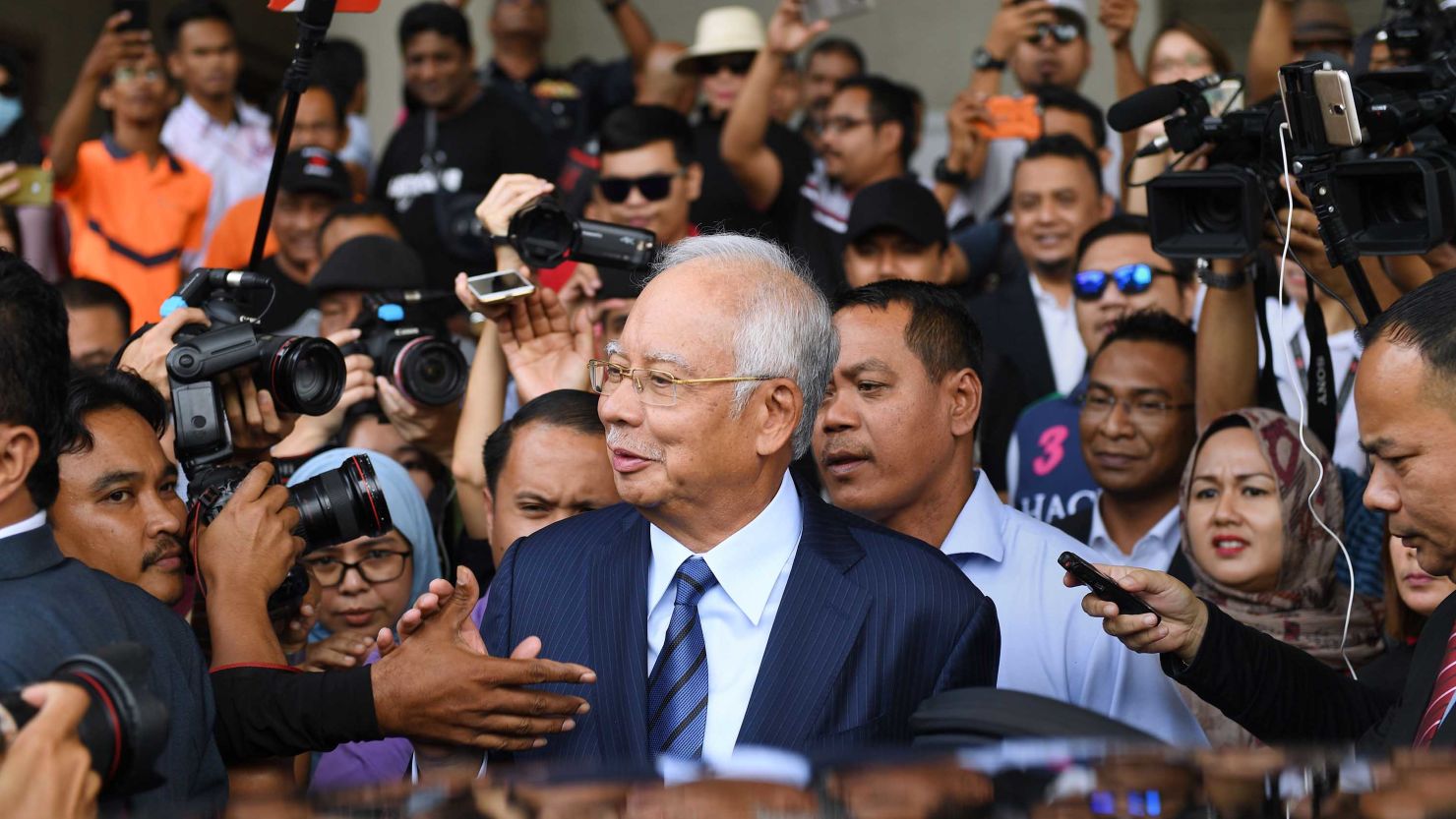Malaysia’s former prime minister will be sent to prison for his role in the multi-billion-dollar 1MDB scandal after a court in Kuala Lumpur rejected his final appeal on Tuesday.
Najib Razak, who served as Malaysia’s PM from 2009 to 2018, was found guilty of money laundering, abuse of power and other charges in 2020. He will now begin a 12-year jail sentence. Najib has consistently denied wrongdoing but his final route to appeal was rejected Tuesday by a five-judge panel at Malaysia’s High Court.
The charges were related to the onetime sovereign wealth fund, which prosecutors alleged he and his allies used as a personal piggybank to support luxurious lifestyles and fund electioneering. The former PM was also fined 210 million Malaysian ringgit ($46.94 million)
The charges were related to payments from SRC International, a unit of the 1Malaysia Development Berhad (1MDB), the onetime sovereign wealth fund, which prosecutors alleged he and his allies used as a personal piggybank to support luxurious lifestyles and fund electioneering.
The former PM was also fined 210 million Malaysian ringgit ($46.94 million).
The 1MDB fund was created soon after Najib took office in 2009. The government pumped billions in public money into it, with the stated purpose of leading “market-driven initiatives to assist the government in propelling Malaysia towards becoming a developed nation that is highly competitive, sustainable and inclusive.”
Instead, according to United States prosecutors, 1MDB was used as a slush fund by Najib and other high-ranking officials at the fund. Billions of dollars of taxpayers’ money were funneled and embezzled out of Malaysia, prosecutors said.
Goldman Sachs, which underwrote much of the 1MDB fund and was facing a host of criminal and regulatory proceedings in Malaysia, agreed to a $3.9 billion settlement with the country’s government in 2020.
CNN’s James Griffiths and Eoin McSweeney contributed reporting.




